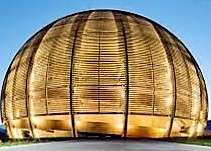Speakers
Description
Experimental neutron capture rates of short-lived neutron-rich nuclei are of pivotal importance for our understanding of explosive nucleosynthesis. In this contribution we present an improved method for constraining neutron capture rates in exotic nuclei experimentally with beam intensities down to a few pps using the $\beta$-Oslo method.
While a powerful technique to access the most exotic nuclei in radioactive ion beam experiments, the traditional $\beta$-Oslo method requires input of the absolute nuclear level density around the neutron separation energy, an unknown quantity in unstable nuclei. In this work, we show that combining the recently introduced Shape method with the $\beta$-Oslo technique allows for the extraction of the nuclear level density without the need for theoretical input. We benchmark our approach using data for the stable $^{76}$Ge nucleus, finding excellent agreement with previous experimental results. In addition, we present new experimental data and determine the absolute partial level density for the short-lived $^{88}$Kr nucleus, provided by CARIBU at Argonne National Laboratory. Our results suggest a five-fold increase in the level density and neutron-capture reaction rate for the case of $^{88}$Kr, compared to the recommended values from microscopic Hartree-Fock Bogoliubov calculations in the RIPL3 nuclear data library. However, they are in good agreement with other semi-microscopic level density models.
